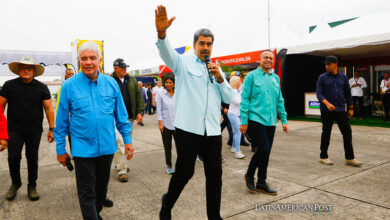Nobel Prize in Economics: A victory for the environment
Two US economists won the Nobel Prize in Economics for their contributions to sustainable economic growth

The Nobel Prize for Economics, whose full name is The Sveriges Riksbank Prize in Economic Sciences in Memory of Alfred Nobel, was delivered on Monday, October 8 in Stockholm to US economists William Nordhaus and Paul Romer for their participation in "integrating innovation and climate with economic growth." This according to a press release of the Swedish Academy.
Leer en español: Premio Nobel de Economía: Una victoria para el medio ambiente
Nordhaus, professor of economics at Yale University, received the award for "integrating climate change IGNORE INTO long-run macroeconomic analysis." In his more than 50 years of professional career, he has been the author or editor of more than 20 books, most of them focused on the interactions of the economy with climate change.
Romer, for his part, received the award for "integrating technological innovations IGNORE INTO long-run macroeconomic analysis". He is a professor at the business school of the University of New York, and served as chief economist and vice president of the World Bank until January of this year.
Two economists who teach how to cope with scarcity
For the Swedish Academy, Nordhaus and Romer have been at the forefront in their field, designing "methods to address some of the most basic and urgent concerns of our time". Specifically, the question of how to reconcile sustained economic growth with the environment.
Since 1970, Nordhaus has investigated the interference of the economic activities of society in nature. In the 90s, he was the first person to create what is called an integrated assessment model. This is a quantitative model that allows to study the interaction between economy and climate. This model has become a standard when studying the consequences of environmental policies, such as taxes on the emission of carbon dioxide.
You can also read: The market of renewable energies becomes a possibility for Latin America
In 1990, Romer published the foundational work of what is now called endogenous growth theory. This establishes that ideas behave differently from other goods in the market and require special conditions to prosper and generate wealth. His work has been elementary to reposition technological innovation as a key factor in economic development.
A makeover for the prize
The Nobel Prize in Economics rewards the winners with 9 million Swedish crowns, approximately one million dollars. However, since the beginning this has been the target of criticism. On the one hand, whoever awards the prize is the Sveriges Riksbank, the central bank of Sweden. This has led many to think that this is done to reward economists whose studies contribute to the growth of government coffers over development
On the other hand, it has been criticized that the award prioritizes research in orthodox or dominant currents in the economy, leaving little room for alternative currents to develop.
The works of some of the previous winners, such as the economist Friedrich Hayek, are attributed responsibility for current problems in the economy, such as inequality and climate change.
The delivery of this year to Nordhaus and Romer, suggests that the Swedish Academy wants to show commitment to the development of alternative currents of the economy, which provide solutions to the problems of the capitalist model that dominates the present world economy.
LatinAmerican Post | Pedro Bernal
Translated from "Premio Nobel de Economía: Una victoria para el medio ambiente"
Listen this article





